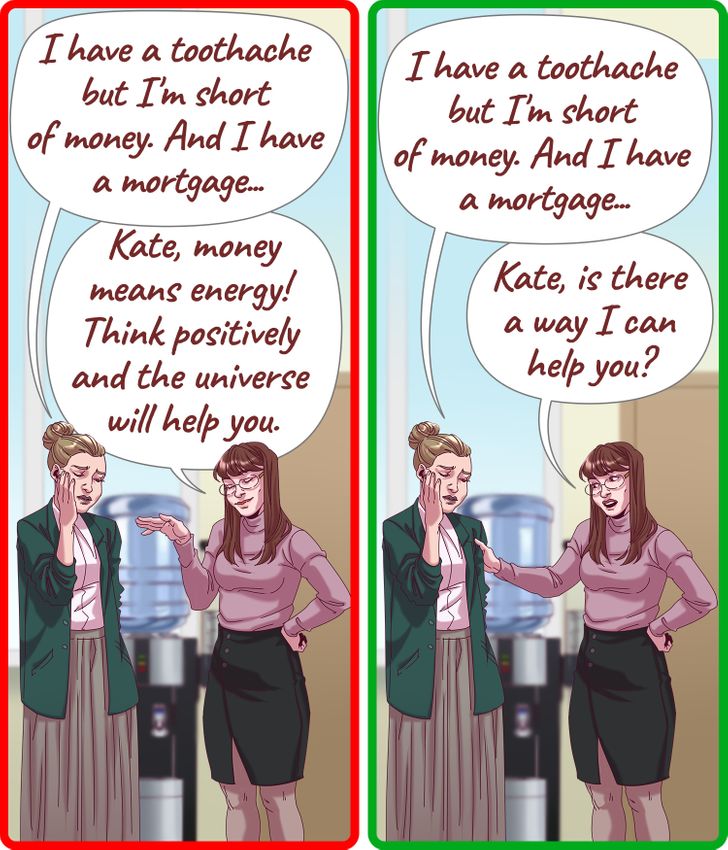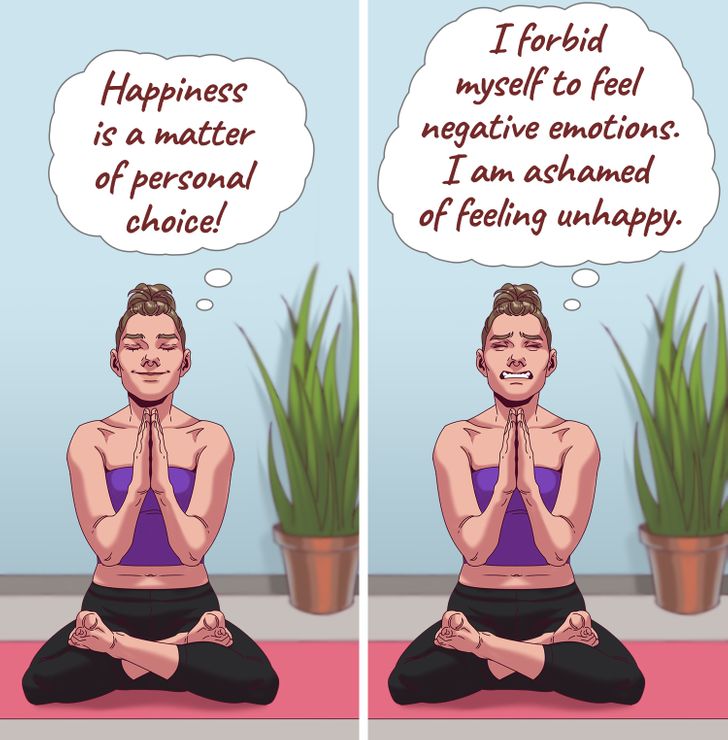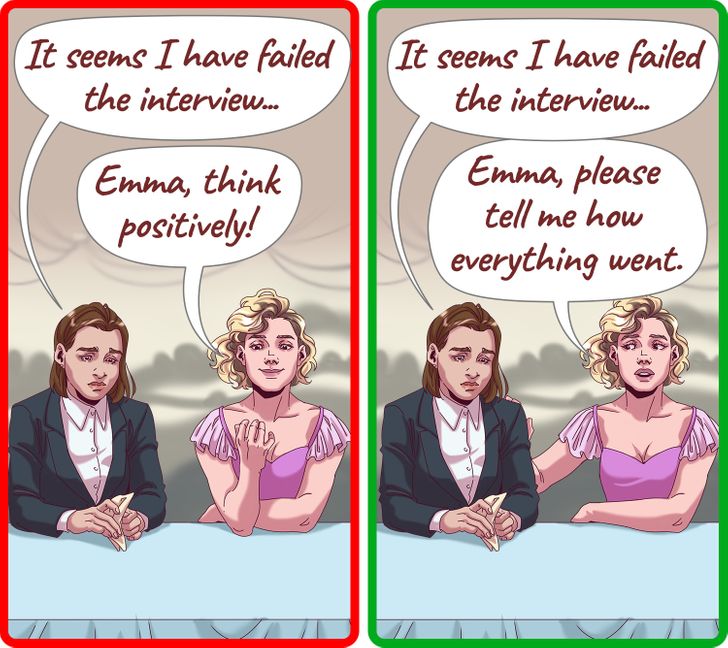Each of us has probably heard encouraging advice that actually made us feel worse. “Don’t overthink it, everything will be fine” or “Don’t be sad, other people get even worse!” These phrases are not really helpful, but rather they encourage us to avoid our problems and suppress true feelings.
We decided to find out what dangers an overly optimistic attitude about life can hide and why it is so important to allow yourself to feel exclusively positive emotions.
What Toxic Positivity Is All About

When talking about toxic positivity, psychologists refer to an approach to life in which a person must always maintain a positive attitude and avoid negative emotions. People who follow this type of thinking tend to go to extremes.
As they try to find the good side of everything, they repress their negative feelings instead of living them, which ends up making their condition worse.
When trying to support others, these people often behave in a toxic way. They honestly don’t understand why their advice to not feel sad and keep it up is so irritating to others.
They don’t suspect that letting a person talk about their true feelings would be a much better way to handle the situation.
Avoiding Problems

A situation where a person not only hides their true feelings behind standard phrases like “Everything happens for the better”, “Happiness is a matter of personal choice” or “Smile and the world will smile back”, but also shames others for relating to life not optimistically enough can also be an example of toxic positivity.
“You got fired? This is no big deal! After all, you are safe and sound. “What is so scary about getting divorced? One wife today, another tomorrow. “
Instead of looking for a way out of a difficult situation, these people make mistakes. They behave like little children who believe that others do not see them if they hide their faces in their hands: “If I do not pay attention to a problem, it means that the problem does not exist.”
A Ban On Negative Emotions Within Themselves And From Others

By neglecting and stifling negative emotions, one only increases them. The ability to fight “bad” feelings in oneself, such as anger, sadness, or melancholy, may seem to be hallmarks of a strong personality.
However, constantly lying to yourself that everything is fine when, in reality, it is the other way around, ends up affecting our psychological health.
Fans of toxic positivity cannot accept their negative emotions or the negative emotions of other people. Faced with the anxiety, emptiness, or depression of other people, they try to minimize the negative experience of the interlocutor, isolating themselves from uncomfortable internal feelings.
Devaluing The Feelings Of Other People

The line between supporting and devaluing other people’s concerns is very thin. Sometimes people find it unbearable to be with a person who is feeling bad and in pain.
To hide their discomfort, they begin to demand behavior and a reaction that the other person is simply not capable of, saying things like “Get ready!” or “Come on, smile a little.
Tell me something Good! As a general rule, this advice only increases feelings of guilt and shame.
Is there someone among your friends who has a constant positive attitude towards life? What encouragement do phrases bother you the most?


